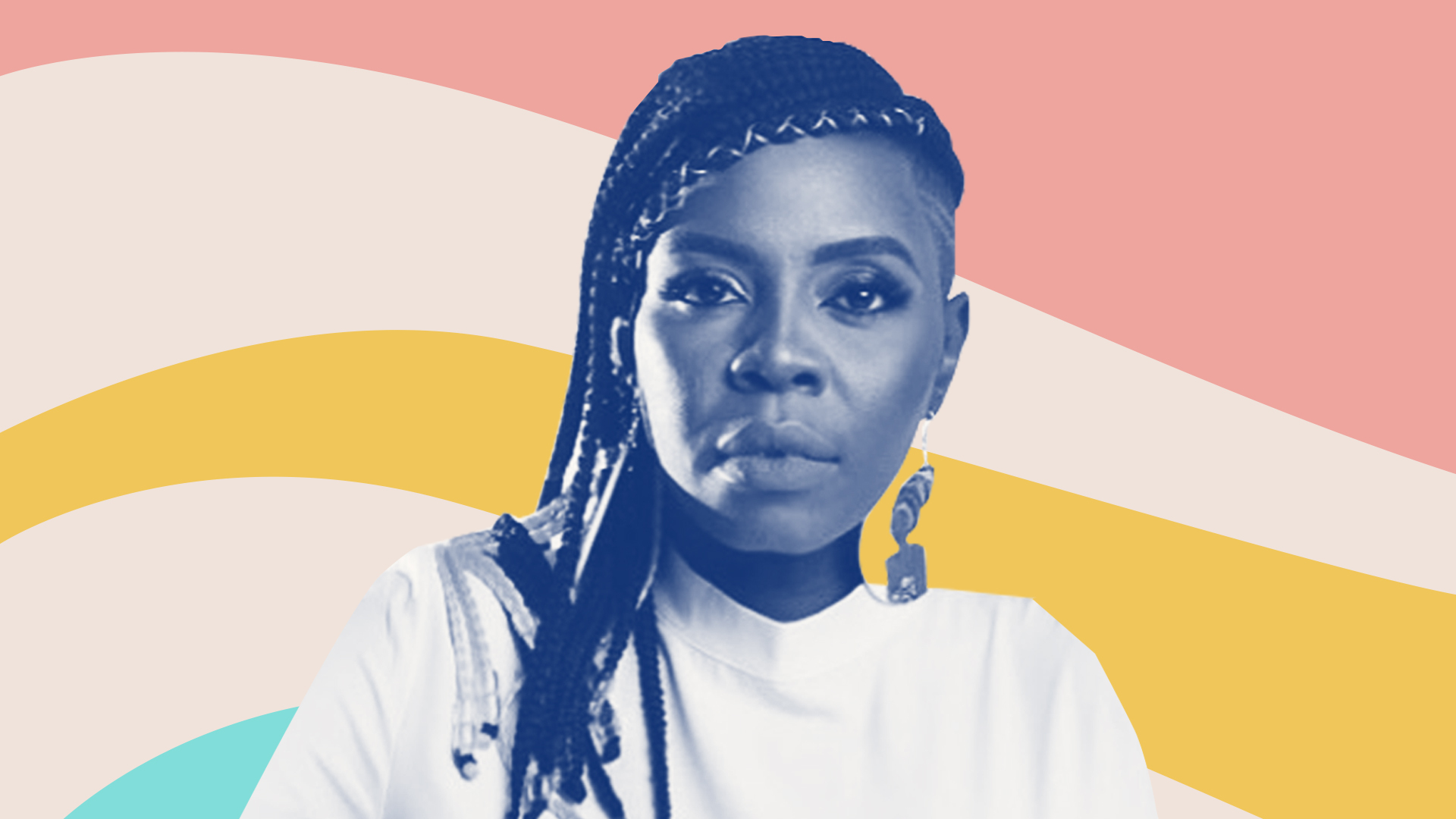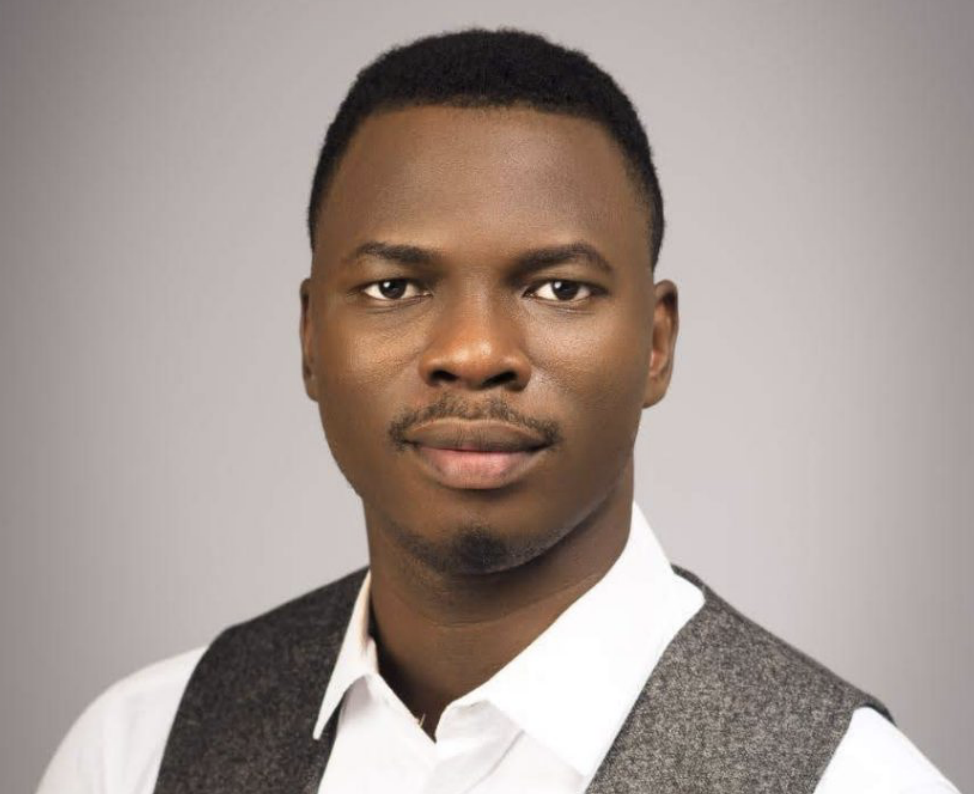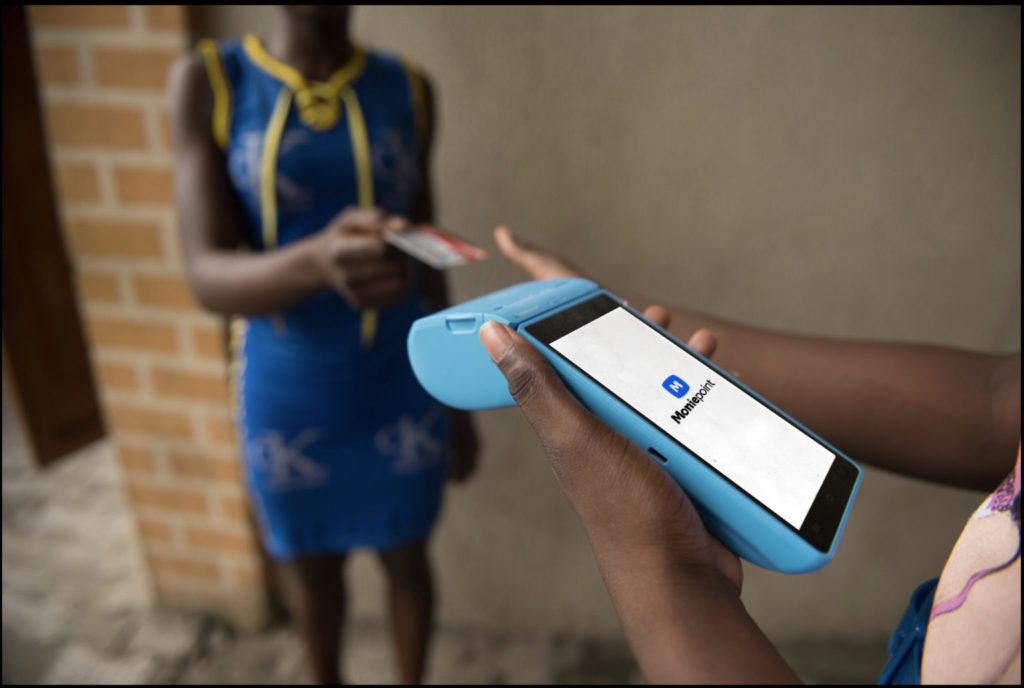My Life In Tech is putting human faces to some of the innovative startups, investments and policy formations driving the technology sector across Africa.
Faith History was not always interested in computer/technology until a series of life events drove her back to gain digital skills that were pivotal in her career trajectory in digital advertising and strategy. Today, she is a strong advocate for developing and impacting digital literacy. This is her non-tech life in tech.
Faith History seems like the ideal moniker for an eccentric media personality and History, whose birth name is Faith Temitope Nsa, lives up to that name.
We are meeting at her home office on the Lagos Island where she shares stories about her upbringing, landing a role at NASA, keeping abreast with innovation and propelling the digital literacy train via podcasts and broadcast media, to the smell of burning incense and the hum of a fan.
Faith History was born in Ilorin to parents who were both educators and travelled a lot in line with their careers as academics often taking herself and her three siblings along with them for extended periods of time.
“What a lot of people don’t know about me is that my dad, he’s late now, was Deaf. And so was my mum. So my first language really is ASL, American Sign Language,” she says.
She was always interested in the media and found ways, as a teenager, to be involved in a number of activities along media lines like stage acting and presenting. Back in the US for her undergraduate studies, her father nudged her in the direction of communications saying it suited her innate inclination towards communication and media.
Computers and the science behind them did not interest her that much. Despite being told that the field had nothing similar with life sciences which she detested, and that there were many non-coding opportunities available in the field, she went on to graduate excellently with a degree in Corporate Communications with very little knowledge about the workings of the tech-saturated Washington DC area where she lived.
Six months after graduating however, she was back to the classroom to take those computer classes she had run away from having lost her job in the data analytics department of a software development company to a round of layoffs.
“I had to go back and take a course in web development,” Faith History recalls. This was the early 2000s’ when companies like Facebook and Twitter were founded, when USB flash drives replaced floppy disks and video content could be uploaded and streamed on YouTube. There was clearly an inflection point in the revolutionary possibilities of technology at the time, but, as she says, she was reluctant to move with the time; an error she’s ensured has stayed in the early 2000s.
That course opened up a dream job at NASA, the National Aeronautics and Space Administration.
“I went in for the position of a more senior web programmer. But they could see that I wasn’t a seasoned programmer,” she recalls.
What they did instead, was carve out a new role which they saw a need for and thought she was perfectly suited for. She would spend the next two years developing digital content and refurbishing a platform for the Solutions for Enterprise-Wide Procurement (SEWP) team, an in-house procurements department within NASA, as a content web producer. There was some technicality and coding involved which she worked through with the knowledge she had gained during the course training and mentorship from older colleagues.
After NASA, History went on to pursue more creative inclined roles that also merged with her experience in digital content production, strategy and social media management/campaigns working with a number of agencies and for global advertising company Ogilvy.
One of her most memorable projects during this time was Channel O’s Young, Gifted and Black campaign which ran sometime in 2009 for Black History Month.
“That was a memorable project. It caught on like fire. I think that was one of the highlights of agency work for me,” she says.
“Being able to be part of the team that took it digital was amazing.”
Another she recalls was managing Zain’s rebrand to Airtel campaign in her role as Regional Digital Manager for Ogilvy Africa. Again, some of the skills and experience garnered from the after-school digital training course proved handy in driving the ideas that helped her stir her team to successfully execute the campaign.
Back in Nigeria in 2015, with her media and digital content strategy experience, Faith History launched eDigital Africa, a digital marketing, strategy and branding agency, through which it disseminates a flagship eDigital Africa Show across podcast channels, video streaming platform YouTube, radio and television broadcast channels.
“Last year we registered as a full fledged company and we started our Let’s Go Digital series where we train other people in digital skills,” she says.
The eDigital Africa show, which now includes a video version published on sharing platform YouTube, is a curation of the impact of digital literacy and technology across a wide range of sectors from fashion to health and wealth management.
In addition to online streaming platforms, the show is syndicated on three radio stations and one television station and is largely self-funded.
A partnership with telecommunications company, MTN, which she says was signed in 2015, has also helped reach more audiences.
With Let’s Go Digital, Faith History brings together startup founders and soon-to-be founders together for a period of training in digital marketing and content creation/optimisation via various formats to better prepare them to utilise technology and digital skills to scale their ideas.
I’ve gone from developing a website in six months to being able to develop a basic site in two hours, because there are already tools and sites that have created templates for you.”
– Faith History
“That’s how far digital technology has gone. There are many modules and pieces of it that have been created over time that by the time you add everything together, you can have a fully functioning e-commerce site up and running in a couple of hours.
“And that skill is available to everybody who can read and write, and who can use a computer,” she says.
Digital literacy refers to the ability to access, manage, understand, integrate, communicate, evaluate and create information safely and appropriately through digital technologies for employment, decent jobs and entrepreneurship. It includes competences that are variously referred to as computer literacy, ICT literacy, information literacy and media literacy.
46% of work activities in Nigeria are susceptible to automation according to the World Bank. Coupled with poor funding in the educational system (7% of government spending), the lack of quality digital training at foundational academic levels mean that there are many individuals who lack basic digital skills with more of them concentrated in less urban areas where broadband penetration and internet connectivity are negligible.
According to Faith History, while the goal is to spread the eDigital Africa Show across more broadcast channels around the country and potentially Africa, the company is leaning towards providing inspiration and direction for those who already have some basic understanding or skill set and are seeking to improve them.
“It’s expensive. It’s hard to do. The way radio works in Nigeria, you have to buy airtime and you have to have sponsors in those time slots,” she explains.
One of the challenges with trying to impact digital literacy in the five years since the company was founded, she says, has been the intangibility of the value that the show proffers to audiences as well as the million and one other things vying for attention online.
“For us, part of revamping our content has been with that in mind,” she says. By that, she refers to finding ways to mix technology, which, like her, some people put off on the onset as too technical and difficult to understand, with some form of entertainment factor so as to make the message easy to consume for audiences.
“You simply have to look at how people consume information.”
Perhaps one of the show’s lasting impacts has been the ability to connect audiences with available learning opportunities depending on their desired skill acquisition outcomes.
Tech talent training outlets are not in short supply in cities like Lagos and elsewhere. From Decagon to LearnFactory in the east, there are a number of programmes particularly offering advanced and specialised digital literacy skills in fields like software development, data analysis, Machine Learning and more. In more than 200 podcast episodes, some of which have been adapted into visual content to keep audiences engaged, individuals can not only learn about how technology is impacting a business sector or field, Faith History says she is also quickly becoming a bridge to link those who are interested to learning opportunities.
“Our greatest impact would be when we are able to connect the dots,” says Faith History.
Nigeria has set a new 95% digital literacy target for the next ten years under a Digital Economy Strategy in order to ramp up the contributions of the ICT sector to the Nigerian economy. Last year, the sector accounted for 13.8% of the nation’s GDP more than the oil and gas sector on which the country has been heavily reliant. Faith History says eDigital is only one player among many others who are and must come together to drive this goal forward across the country.
Faith History doesn’t believe there is a need to reinvent the wheel all the time. And this is one thing she stresses with her small team to boost their capabilities and their efficiency.
“Whatever you are looking for, somehow, somewhere in the world, it’s already being done or a version of it has been done. Find out what version of that thing is being done and make it better.”
“I don’t believe in starting from scratch.”















